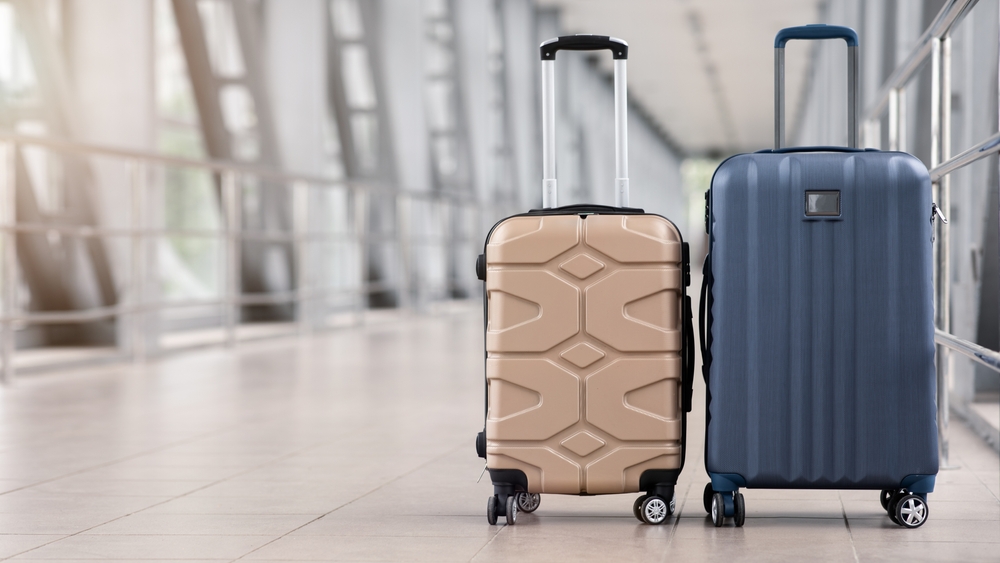Have you ever found yourself standing at baggage claim, watching as the carousel comes to a grinding halt, yet your luggage is nowhere to be seen? It’s a travel hiccup that many dread, yet it’s surprisingly common. Dealing with lost baggage can be a stressful ordeal, leaving you without your belongings and potentially disrupting your travel plans. Navigating the process of recovery and compensation can seem daunting, but there are steps you can take to mitigate the headache. As a Reddit user puts it, “It’s all about knowing who to talk to and what to expect.” Let’s dive into the practical solutions that can help you reunite with your lost or stolen items and ensure you’re fairly compensated for your troubles.
1. Use a Smart Luggage Tracker
When luggage goes missing, having a smart luggage tracker can be a game-changer. Devices such as Tile Pro or the LugLoc Luggage Tracker can be easily slipped into your suitcase and synced with your smartphone. These trackers use a combination of Bluetooth and GPS technology, providing you with the ability to see your luggage’s last known location. This information is incredibly useful when communicating with the airline’s lost and found department. By providing them with the exact location, you significantly increase the chances of quick recovery. It’s a small investment that can save you a lot of stress and potentially, money, should your bags go astray.

2. Leverage Credit Card Travel Protection
Many people don’t realize that their credit card may come with travel protection benefits, including lost luggage reimbursement. If you have a premium credit card, there’s a good chance that you’re covered for lost or stolen luggage. You can typically receive compensation for both your suitcase and its contents, subject to a predefined limit. To take advantage of this benefit, submit all required documents, such as the proof of loss provided by the airline and receipts for the items that were in your lost bag. This compensation can be a substantial relief, especially if your lost items were valuable.
3. Access Airline Compensation and Purchase Essential Items
Airlines have certain responsibilities to their passengers when it comes to lost luggage, as outlined by the Montreal Convention or the individual airline’s policy. Depending on the circumstances, you may be entitled to compensation which can include a daily amount for essential items until your bag is returned or a lump sum if it’s considered permanently lost. This compensation can be used to purchase necessary items such as toiletries and clothes, which can be found at widespread retailers like Uniqlo or H&M. Knowing your rights and what to expect from the airline can help ensure you’re not left out of pocket while waiting for your luggage.
4. Consult with Third-Party Baggage Recovery Services
Sometimes, despite their best efforts, airlines can’t locate your luggage. In such cases, turning to third-party baggage recovery services might be a wise choice. Companies like Blue Ribbon Bags and WorldTracer are experts in tracking down lost luggage. They often operate on a “no find, no fee” policy, which means you won’t pay unless they successfully recover your bag. By providing them with your baggage file reference, they can take over the search process, liaising with airlines and airports on your behalf, which can lead to better results and less stress for you.


5. Claim on Travel Insurance
Travel insurance is another layer of protection for travelers. If your luggage is lost, travel insurance can provide compensation that goes beyond what the airline offers. Start by creating an exhaustive list of your luggage contents, noting their approximate value. File a claim with your travel insurance company, providing all necessary documents, such as your travel itinerary and the Property Irregularity Report from the airline. Additionally, hold onto any receipts for purchases made due to the loss. Travel insurance can be particularly beneficial if you were carrying expensive items, as their coverage limits can be higher than those provided by airlines or credit cards.

